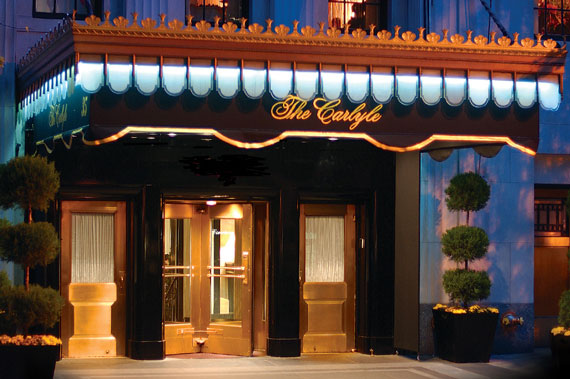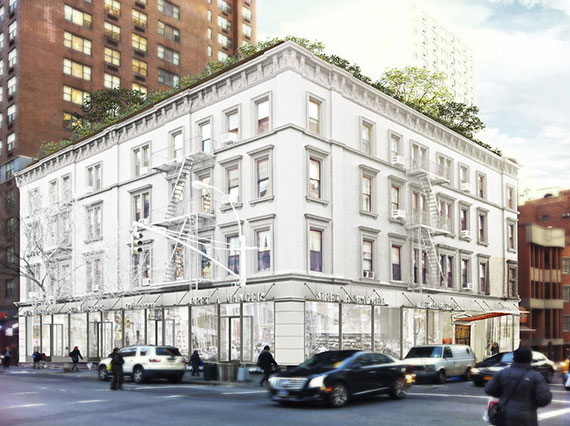Winning exclusive sales agreements for stratospherically priced apartments is a blood sport in New York. But while it may not get the same level of attention, the competition for exclusive listings on the rental side is also fierce.
Landing an exclusive — the coveted agreement to represent a property owner — can mean the difference between thriving or diving in today’s tight rental market.
This month, in order to zero in on this under-the-radar world, The Real Deal ranked Manhattan’s residential brokerage firms by the annualized asking rent volume of their exclusive listings, culling listings posted on the widely used On-Line Residential in a one-day, late-October snapshot.
The top 10 firms on the ranking are notably similar to the top firms on TRD’s annual sales ranking.
Douglas Elliman and the Corcoran Group ranked No. 1 and No. 2, with $81 million and $49 million in exclusive rental listings, respectively. Town Residential, a considerably smaller firm, placed third with $37 million, while Brown Harris Stevens ($31 million) and Sotheby’s International Realty ($24 million) rounded out the top five.
To be sure, the overall dollar amount for these exclusives is a minuscule fraction of each firm’s sales listings — by comparison, Elliman and Corcoran had a staggering $4.2 billion and $3.6 billion in that category in TRD’s latest ranking in the spring.
And exclusives are often just a portion of each firm’s overall rental deals when open listings are factored in.

Douglas Elliman’s Luciane Serifovic
Still, these rental exclusives are important, as they tend to skew toward the higher end of the price spectrum. That’s because an owner looking to rent out an apartment for, say, $15,000 a month is far more likely to tap an exclusive rental agent than someone looking to lease up a $1,500-a-month unit.
“There are very few super-luxury listings that are not represented by a broker [in an exclusive],” said Elliman’s Luciane Serifovic, executive manager of rentals. “There’s a lot more at stake, so you really want to get maximum exposure.”
While individual Elliman agents have exclusive listings that go as high as $150,000 a month, the firm also has exclusive agreements for a number of high-end buildings, like 15 William Street, where the penthouse broke the Downtown rental price record when it leased for $15,000 a month in 2013. (The building has since mostly converted to condos, but is still exclusively represented by Elliman.)
These exclusive rental deals can prove important to a firm’s long-term bottom line.
Serifovic said Elliman’s rental business feeds right back into sales. The owners — whether developers looking to lease up buildings or individuals who want to rent a single unit — usually come back when it’s time to sell.
“When we help a landlord with rentals, they eventually also sell at another building, and we’ll be there when it’s time to sell,” Serifovic said.
Wooing owners
October, the most recent month on record, marked the 20th consecutive month in the rise of the Manhattan rental market. Median rents for the borough hit $3,391, up 4.5 percent from October 2014, according to an Elliman report.
The number of new rentals, meanwhile, was down 0.4 percent year-over-year and the average Manhattan unit was on the market for just 40 days, making competition among renters for any apartment fierce.
For firms and agents, locking in buildings is no easy feat either. Building owners, sources say, don’t have time to chitchat with every broker who knocks on their door.
“Owners don’t tend to meet with 10 brokers,” said Town Residential leasing vice president Itzy Garay. “Sometimes it could be three or four, but I don’t think owners are really meeting with more than that.”

Town Residential’s Itzy Garay says many apartment owners only take a handful of broker pitches.
Serifovic added that sometimes a broker must prove to a landlord over a six-month period that they can reel in strong rents on open listings before getting an exclusive. Other times, however, landlords only require a six-week tryout, she said.
Connections, of course, always come in handy.
Town, for example, has an exclusive agreement to lease up the Allen House, a boutique luxury rental on the Upper East Side where a four-bedroom unit leased for $22,150 in September. The firm, however, may have had an inside track: The building is owned by the developer Joe Sitt, Town’s co-chairman and co-owner.
Still, Town rented 70 percent of the units within 45 days of launching in August.
Meanwhile, Elliman, Serifovic explained, often secures exclusive rental and management agreements through its partnership with international commercial brokerage Knight Frank.
Beyond big guns
While NYC’s biggest and most-connected firms are dominant in this ranking, mid-sized and boutique firms are also gunning for these listings and trying to distinguish themselves.
Gabriel Leibowitz, a broker who works out of Warburg Realty’s Tribeca office on the “Skygroup” team, is one of them.
“What you need to do in order to get real volume from an owner who has a lot of property is really differentiate yourself and offer true value beyond just basic broker duties,” he said.
While Warburg only clocked in with $9 million in TRD’s ranking of exclusive rental listings, it had one of the highest average asking rents in the analysis, at $19,824. That number was boosted by agent David Salvatore’s two $150,000-a-month exclusives for suites at the Carlyle Hotel. The units are available for one-to-12 month leases, and commission is currently set at 15 percent, according to OLR.

The Carlyle Hotel
“[They are] very personal, very bespoke, and it’s very custom,” Salvatore said of the Carlyle units. For a renter who can sign away $150,000 in a month, nearly everything is customizable, from the children’s furniture to the call-in chef, he said.
“We had to find a cat babysitter,” said Salvatore, recalling one particularly memorable request. “I’d never heard of a cat babysitter.”
Supersized brokers
While new development marketing firms are regularly brought on to consult on everything from design to pricing, brokerages leasing in existing buildings are also trying to make themselves more integral.
They are pitching landlords to start the renewal process early, consulting on major renovations, scheduling moves, weighing in on unit re-pricing and suggesting unit modifications that can maximize rent potential.
“You take the broker duties and you enhance them in a way that you become indispensable,” Warburg’s Leibowitz said.

The Allen House on the Upper East Side, which is owned by developer Joe Sitt, is being leased by his brokerage Town Residential.
And sometimes it goes beyond just working with the owners. “Hey, there’s been a leak in my apartment. I can’t seem to connect with my super” is one type of phone call Bohemia Realty co-founder Sarah Saltzberg and her team field on a near-daily basis. Bohemia, a smaller firm that did not make TRD’s ranking, focuses entirely on Northern Manhattan.
The firm, which launched in 2012, is based out of an office on Frederick Douglass Boulevard at 113th Street in Harlem. And as more Downtown firms migrate north, Saltzberg’s competition is intensifying.
“We didn’t have any competition when we started,” she said, “but we do have it now.” The numbers in OLR back that up. A survey of exclusive rentals in Washington Heights found many of the firms on TRD’s ranking are active in the area: Citi Habitats had 17 of the 93 listings, while Halstead Property, Corcoran, Elliman and other big firms had a bunch as well.
To meet the competition, Bohemia is expanding, opening its first office in Washington Heights next month.
But again, sales are often the end game.
Leibowitz is in talks with one Financial District landlord about the possibility of repositioning a rental building for condo conversion. He believes he stands a good chance of winning the exclusive should the plans move forward.
He’s not alone.
Saltzberg recently helped an owner on a rental-to-condo conversion. The Harlem building, Saint Anne’s Court at 48 West 138th, a co-exclusive with Rubicon Property (now Warburg), began sales in late 2013. Resales there have approached $1,000 a square foot.
Targeting buildings that are contenders for condo conversion has become a key strategy for Bohemia and others. But getting exclusives at those sites in the first place is trickier than a strong pitch and condo-conversion aspirations.
“The most important thing for developers and the landlord is metrics and the bottom line,” Saltzberg said.
